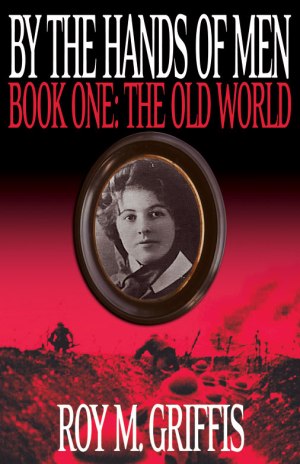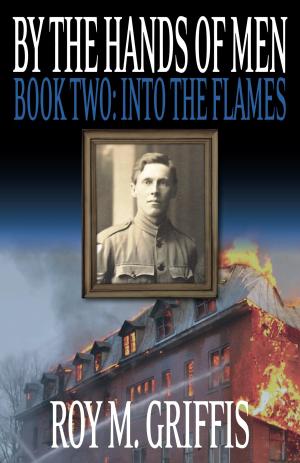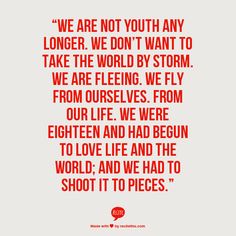A Love Hate Story
![Women of Britain say GO [image credit: E J Kealey (artist) Parliamentary Recruiting Committee (copyright owner/commissioner) Hill, Siffken & Co. (L.P.A. Ltd.) (Publisher) Adam Cuerden (Restoration) - Te Papa Tongarewa (The Museum of New Zealand)] https://en.wikipedia.org/wiki/Music_hall#/media/File:Women_of_Britain_Say_-_%22Go%22_-_World_War_I_British_poster_by_the_Parliamentary_Recruiting_Committee,_art_by_E_J_Kealey_(Restoration).jpg](https://barbtaub.com/wp-content/uploads/2016/04/women_of_britain_say_-_-go-_-_world_war_i_british_poster_by_the_parliamentary_recruiting_committee_art_by_e_j_kealey_restoration.jpg?w=300&h=447)
Women of Britain say GO [image credit: E J Kealey (artist) Parliamentary Recruiting Committee – Te Papa Tongarewa (The Museum of New Zealand)]
“There used to be tea rooms on almost every street in England.” An older friend was reminiscing about her youth and her parents’ generation. “Women needed something to do, and they knew how to bake, and to make proper tea.”
With bureaucratic cruelty, the post-war census labelled them “Surplus Women”. After almost ten percent of British men under the age of 45 died in World War I—the Great War—Britain was left with two million more women than men. In my friend’s family, none of the women of the previous generation had married. One of her aunts said that when they sent their husbands, sweethearts, brothers, and cousins off to fight, so few returned that girls were told only one in ten of them could expect to marry.
You can see this in almost every town and village in the UK. At the town center, or in a churchyard, or in a specially made park there is sure to be a poppy-decorated War Memorial dedicated to their men who didn’t return. In our own tiny village, which couldn’t have had forty households at the start of the war, there were sixteen men who didn’t come home. Meanwhile, the men who did return were often not only physically wounded and handicapped, but suffering the effects of the nightmare carnage that was trench warfare.

War Memorial “To Our Glorious Dead”, Brancepeth, England [image credit: The Yorkshires]
I wish those people who write so glibly about this being a holy war and the orators who talk so much about going on, no matter how long the war lasts and what it may mean, could see a case of musterd gas – the poor things burnt and blistered all over with great musterd coloured suppurating blisters, with blind eyes, all sticky and stuck together, and always fighting for breath, with voices a mere whisper, saying their throats are closing and they know they will choke. —Nurse Vera Brittain, in her ‘Testament of Youth‘
I was thinking about that generation today, the ones Gertrude Stein called the Lost Generation. And while that phrase usually evokes images of Ernest Hemingway and F. Scott Fitzgerald’s frantic, edgy expatriate generation, it also includes a generation of women who had no choice but to carry on despite lost hopes and failed expectations.
Today I’m posting my review of author Roy M. Griffis’ epic World War I series, By the Hands of Men. Also, please come back tomorrow when Roy joins us to talk about his life and his writing.
By the Hands of Men, Book One: “The Old World”
 Lieutenant Robert Fitzgerald has managed to retain his sanity, his humanity, and his honor during the hell of WWI’s trench warfare. Charlotte Braninov fled the shifting storm of the impending Russian Revolution for the less-threatening world of field camp medicine, serving as a nurse in the most hopeless of fronts. Their friendship creates a sanctuary both could cling to in the most desperate of times. Historical fiction about life, loss, and love, By the Hands of Men explores the power that lies within each of us to harm – or to heal – all those we touch.
Lieutenant Robert Fitzgerald has managed to retain his sanity, his humanity, and his honor during the hell of WWI’s trench warfare. Charlotte Braninov fled the shifting storm of the impending Russian Revolution for the less-threatening world of field camp medicine, serving as a nurse in the most hopeless of fronts. Their friendship creates a sanctuary both could cling to in the most desperate of times. Historical fiction about life, loss, and love, By the Hands of Men explores the power that lies within each of us to harm – or to heal – all those we touch.
Book Title: The Old World (By the Hands of Men, Book1)
Author: Roy M. Griffis
Genre: Epic Historical Fiction
Publisher: Amazon
Length: 263 pages
Release Date: December 25, 2013
Contact and Buy Links:
Amazon (US) | Amazon (UK) | Blog
By the Hands of Men, Book Two: “Into the Flames”
 Charlotte Braninov, traumatized by loss and her service as a frontline nurse, returns to war-torn Russia to find her family. Captured by the Red Army, she exchanges one hell for another. Her still-loyal Lieutenant, Robert Fitzgerald, believing the woman he loves is dead, struggles to recover from the ravages of combat and typhus. In a desperate bid to rediscover himself, he commits to serve his country as a pawn in distant Shanghai. Forging their destinies in a world reeling after The Great War, Charlotte and Robert will learn anew the horror and the beauty the hands of men can create when they descend into the flames.
Charlotte Braninov, traumatized by loss and her service as a frontline nurse, returns to war-torn Russia to find her family. Captured by the Red Army, she exchanges one hell for another. Her still-loyal Lieutenant, Robert Fitzgerald, believing the woman he loves is dead, struggles to recover from the ravages of combat and typhus. In a desperate bid to rediscover himself, he commits to serve his country as a pawn in distant Shanghai. Forging their destinies in a world reeling after The Great War, Charlotte and Robert will learn anew the horror and the beauty the hands of men can create when they descend into the flames.
Book Title: Into the Flames (By the Hands of Men, Book 2)
Author: Roy M. Griffis
Genre: Epic Historical Fiction
Publisher: Amazon
Length: 440 pages
Release Date: November 14, 2015
Contact and Buy Links:
Amazon (US) | Amazon (UK) | Blog
 My Review: 5 stars out of 5
My Review: 5 stars out of 5
In my high school English class, our teacher screened Franco Zeffirelli’s Romeo and Juliet, assuring us that we would love it because the leads were played by actual teenagers. And I tried, really I did, to get into the tale of star-crossed lovers. Only… not so much. Romeo seemed whiny. Juliet had a bit more backbone, but still didn’t do it for me. It wasn’t until several more versions of the story later that I realized the problem. Romeo and Juliet isn’t a love story—it’s a hate story. The events unfolded, the emo lovers angsted and died, all because of the hatred their parents didn’t hesitate to escalate to the level of open warfare.

Born in Texas City, TX, the son of a career Air Force meteorologist. Attended a variety of schools at all of the hot spots of the nation, such as Abilene, Texas and Bellevue, Nebraska. Sent to my grandparent’s house in Tucson, Arizona when things were tough at home. I was pretty damn lost, as my grandparents were largely strangers to me. My older brother, a more taciturn type, refused to discuss what was going on. Fortunately, like so many kids before me, I was rescued by literature. Or, at least, by fiction.
In a tiny used bookstore that was just one block up from a dirt road, I discovered that some good soul had unloaded his entire collection of Edgar Rice Burroughs’ “John Carter of Mars” series in Ballantine Paperback. Moved by some impulse, I spent my RC Cola money on the first book, “A Princess of Mars.” I think what struck me was how these books were possessed of magic: they were able to transport me far from this dusty land of relatives who I didn’t know and relatives pretended not to know me to another dusty land of adventure, heroism, nobility, and even love. It was the first magic I’d encountered that wasn’t a patent fraud, and when I closed the stiff paperback with the lurid images on the cover, I decided it was the kind of magic I wanted to dedicate the rest of my life to mastering. And, thus, I was saved.
Since then, I’ve never looked back. I’ve written poems, short stories (twice runner-up in the Playboy college fiction contest), plays (winning some regional awards back East and a collegiate Historical Play-writing Award), and screenplays. I’m a member of the WGAw, with one unproduced screenplay sold to Fox Television. Along the way, I’ve done the usual starving artist jobs. Been a janitor, a waiter, a clerk in a bookstore. I was the 61st Aviation Rescue Swimmer in the Coast Guard (all that Tarzan reading wasn’t wasted). I’m also not a bad cook, come to think of it. Currently, I’m a husband, father, and cat-owner. I’m an avid bicyclist and former EMT.
I live in Southern California with my lovely wife. My friends call me “Griff,” my parents call me “Roy,” and my college-age son calls me “Dadman.” It’s a good life. By the Hands of Men, Book Three: “The Wrath of a Righteous Man” will be released in May, 2016.
In his brilliant epic depiction of the first World War, author Roy M. Griffis introduces us to another star-crossed pair whose love story is set against the backdrop of the hell on earth that is the Great War. Like all the best tropes, the Romeo and Juliet devices continue to be effective. Charlotte is a young teen, a Russian aristocrat whose family has disappeared into the maelstrom of the Russian Revolution. Educated in England, she volunteers as a nurse to the British Army and finds herself assisting at a field hospital in France. The son of an unpopular Irish duke, Robert Fitzgerald is suffering from prolonged assignment in the trenches, an ingrained sense of obligation to his men, and an inconveniently persistent code of honor.
War itself is the third main character, perhaps even the primary one. Neither Charlotte nor Robert can pretend that the hell around them is anything but manmade. She realizes that “…no one could look on that shattered land and feel confident in the sanity of man, nor the mercy of the Almighty.”
Charlotte remembers being taken as a child to view the Sistine Chapel in Rome. But in the war, she learns that while the hands of men can paint heaven, they can also create hell.
“She could not credit that something so wondrous had been made by the hands of men. As she worked and struggled to keep breath and life in the ruined men on the operating table, she was continually reminded how the hands of man could as easily make a hell on earth, even as she used the memory of the Chapel in Rome as a talisman to push away despair.”
As eighteen year old Charlotte—already an experienced nurse—heads to the front lines, she compares the nightmare landscape around her to a painting by Hieronymus Bosch. “Instead of bird-headed imps torturing the damned or winged monstrosities flaying sinners, she saw bloated corpses of horses and lorries blown inside-out scattered like broken toys along the way.”
When Charlotte and Robert meet, their conversation is a parody of flowery romantic love, with him calling her “My Lady” and Charlotte responding with “My Knight”—all as he holds down one of his men while she operates without anesthetic. While not precisely love at first sight, neither can forget the other even as the sweep of war separates them. From their alternating points of view, we see Charlotte and Robert develop from relatively shallow and inexperienced youths who pass through the crucible of war, honing each to self-confident strength.
Despite the rules and regulations of that most looming of parents, the British Army, the two fall in love. Of course, their relationship must be secret, but just as Juliet has her Nurse, they are aided by Matron, the hospital’s head nurse.
As their story proceeds, Robert and Charlotte are torn apart. Both believe the other dead or lost to them, and their star-crossed romance seems to end in heartbreak and loss.
In Book 2, their separate stories continue, but now the tropes are more aligned with what Gertrude Stein named the Lost Generation. “All of you young people who served in the war. You are a lost generation… You have no respect for anything. You drink yourselves to death.” (Statement quoted by Ernest Hemingway in A Moveable Feast (1964))
Alone in an alien world, both Robert and Charlotte struggle to find their identities. She decides to return to Russia to look for her family, while Robert breaks with his controlling father and returns to the only thing he knows, service to his country.
Although the Great War is officially over, Charlotte is back in Russia, where even the horror of her previous war hasn’t prepared her for the nightmare of pain and suffering that awaits a country in the throes of revolution. Taken captive, starved and abused, she struggles to stay alive, while despairing of escape. “The entire country was her prison.”
Meanwhile, believing her dead, Robert rejects his father and his heritage, and returns to serving his country, this time as a spy— part of the Great Game. As he heads to Shanghai to help uncover and block the spread of Soviet-style socialism, Robert begins finally to try gain perspective by studying history. The impulsive romantic of Book 1 is growing up.
The pace of these books is definitely more marathon than sprint. Apparently, there are two more volumes coming, with Book 3 due out next month. (You pretty much have to read them in order to understand what’s built each story arc.) The supporting characters are both well-rounded, plus they stimulate the character development of our two heroes. And that development is remarkable, as we see them react to the experience of love and of war. And it doesn’t hurt that the writing is terrific. Historical data seems exhaustively well-researched, and descriptions of the various settings are superb. There is even an ever-so-slightly formal tone that hints at Edwardian phrasing without dumping readers headfirst into a flowery Victorian word-vat.
My only complaints (and they are minor) are that while most of the characters are British, the spellings and quite a bit of the syntax are all-American. In addition, author Griffis is not above cliffhanger endings. There are several episodes that seem a bit superfluous, such as Charlotte’s interactions with the Jewish pawnbroker (like that’s not stereotype!) and his viciously bigoted aristocratic customer. It seems as if some scenes with minor characters have as their only purpose to hit us over the head with the racial, religious, or ethnic stereotypes that Charlotte and Robert have (presumably due to their purification in the fires of war) purged from their repertoire.
But as I debated how to rate these books, I looked back at my own criteria for five stars.
Author goes straight to my auto-buy list, books I wouldn’t hesitate to recommend to anyone, books I would buy hard copies of and not lend out.
That pretty much nails my reaction to this fascinating series. I can’t wait for the next book!
*I received this book for free from the publisher or author in exchange for an honest review. This does not affect my opinion of the book or the content of my review.*
[Please come back tomorrow for my interview with author Roy M. Griffis, plus excerpts from both of these books.]


That is a heart-breaking article, Barb. I had not considered the vast amount of spinsters brought on by the war; poor things.
My moms dad served in WWI. He was wounded by Mustard gas, but survived.
I think that the WWI generation was one of the most literate, and probably produced large stores of touching correspondence. I suspect Mr. Griffis novels reflect this.
LikeLiked by 1 person
Actually, because the officers were primarily drawn from the gentry at this time, and were called on to literally lead the charge, their ranks were even more thinned. I’ve heard theories that this was one of the causes of the significant social changes that followed the war, but I couldn’t say if that is true or not.
LikeLike
Barb, I’d heard something similar about the effects of deaths of the “better” classes, too. It would be hard quantify, but some good grad student somewhere has probably done a study of the social classes represented in writings after the Great War. Given that at the time, the accepted literature was often drawn from the same groups of people who were slaughtered so wholesale, it makes sense those who survived came away and communicated the real horrors of what they saw and experienced. And since, in many ways, they were creating the social consciousness of the time, their distaste and rejection of the kind of thinking that led to that slaughter would have become part of the zeitgeist of the years that followed.
LikeLike
You reference my two favourite books on that war: All Quiet on the Western Front, and Testament of Youth. If these books can come anywhere near them, they will be well worth reading!
LikeLiked by 1 person
I can’t really compare them. Because it’s epic fiction, there isn’t the in-your-face emotional connection that I found in Vera Brittain’s work. Nor is there the stark, eloquent beauty of the message in All Quiet.
What this series represents, I think, is an attempt to create a picture of a generation that was absolutely destroyed on a global scale, and to ask what, if anything, should come next.
LikeLiked by 1 person
It certainly sounds as though I should try to fit them somewhere into my teetering ‘to read’ pile. Thanks, Barb.
LikeLiked by 1 person
Reblogged this on Judith Barrow.
LikeLiked by 1 person
Thanks, Judith!
LikeLiked by 1 person
Pingback: A Star-Crossed Armageddon Pt. 2 #interview with Roy M. Griffis #excerpts #wwwblogs #histfic | Barb Taub
Pingback: Top 10 Reasons Historical Fiction beats History #Bookreview: Wrath of a Righteous Man #WWI | Barb Taub